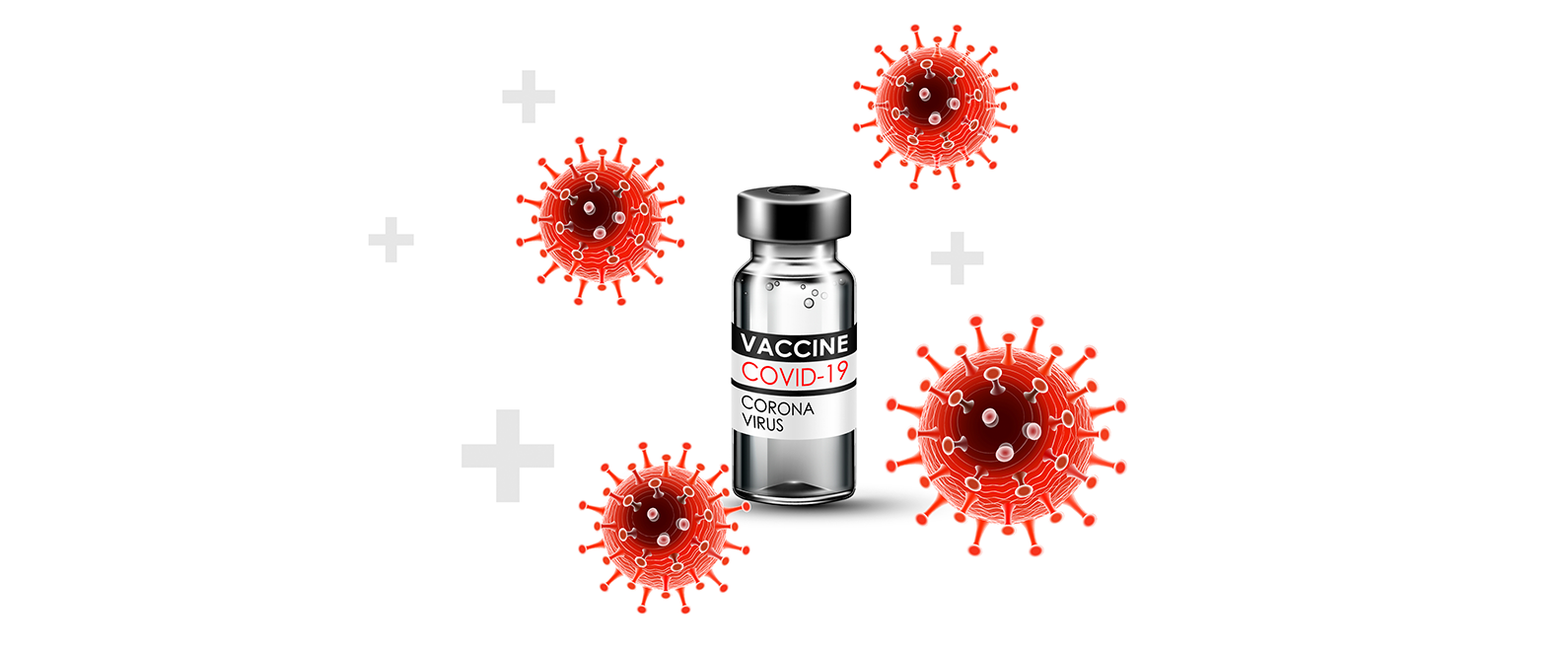COVID-19 Vaccines and Side Effects
 Prepare for and manage the COVID-19 vaccine side effects
Prepare for and manage the COVID-19 vaccine side effects
We are currently amid a large-scale vaccination drive against COVID-19. Several COVID-19 vaccines produced by various pharmaceutical companies are available worldwide. Thus far, only two vaccines – Pfizer/BioNTech and Moderna – have been approved for use in Qatar.
Side effects of the COVID-19 vaccines
Below are the most frequently reported side effects of the Pfizer/BioNTech and Moderna vaccines:
- Pain at the site of injection
- Swelling at the site of injection
- Fever
- Fatigue
- Chills
- Vomiting
- Muscle pain
- Joint pain
All aforementioned side effects are short-lived – typically, they last 24-48 hours after the vaccine dose has been administered. The side effects can usually be managed at home by rest and taking medication. However, side effects can be severe enough to warrant a visit to the emergency room or hospitalization, but such instances are extremely rare. A severe allergic reaction was recorded 4.5 times per one million administered doses of the Pfizer/BioNTech vaccine.
How common are vaccine side effects?
Both Pfizer/BioNTech and Moderna vaccines appear to have side effects that occur more frequently compared to other COVID-19 vaccines or other vaccines such as the influenza vaccine. This may be particularly true after the second dose of the vaccine.
Why do we get these side effects?
The two COVID-19 vaccines approved for use in Qatar are both mRNA vaccines and are among the most effective vaccines currently available. This means that they tend to generate a strong response from the immune system. In other words, a stronger immune response translates into better protection against the virus and can also manifest with some side effects as a reaction of the immune system.

What can I do to prepare for and manage the side effects?
- If you have a history of reactions to vaccines, please ensure that your healthcare provider knows this before you receive the vaccine.
- Plan to have a day or two to rest and recover after the vaccine dose. If possible, take time off from work.
- Take an over-the-counter pain reliever such as paracetamol or an anti-inflammatory (such as ibuprofen) to manage pain and fever.
- Keep antihistamines nearby in case of a rash or itchiness in the area.
- Keep yourself hydrated and well-nourished to allow yourself the best chance of recovering quickly from the side effects.
- If you suffer serious symptoms, do not hesitate to contact the emergency number provided at the vaccination site.
Anything else I need be aware of?
It takes about two weeks after the administration of the second dose for the effects of the vaccine to fully kick in. The side effects of the vaccine are similar to some of the symptoms of COVID-19. Thus, the side effects of the vaccine may mask COVID-19 disease. But you can tell if it is COVID-19 rather than the side effects of the vaccine if the symptoms persist for more than a few days and are more severe.
Remember that those vaccinated could still transmit COVID-19. It is important to continue to practice physical distancing, use face masks and always maintain hand hygiene until the pandemic ends. One last thing to keep in mind: both clinical trial data, as well as data from the real world, suggest that the COVID-19 vaccines have so far had 100% efficacy against hospitalizations and deaths from COVID-19. In other words, these vaccines save lives.
Sources: Centers for Disease Control and Prevention | Ministry of Public Health-Qatar | Cleveland Clinic
Contributors: Dr. Amit Abraham, Dr. Sohaila Cheema, and Dr. Sathyanarayanan Doraiswamy
Editing: Mr. John Hayward